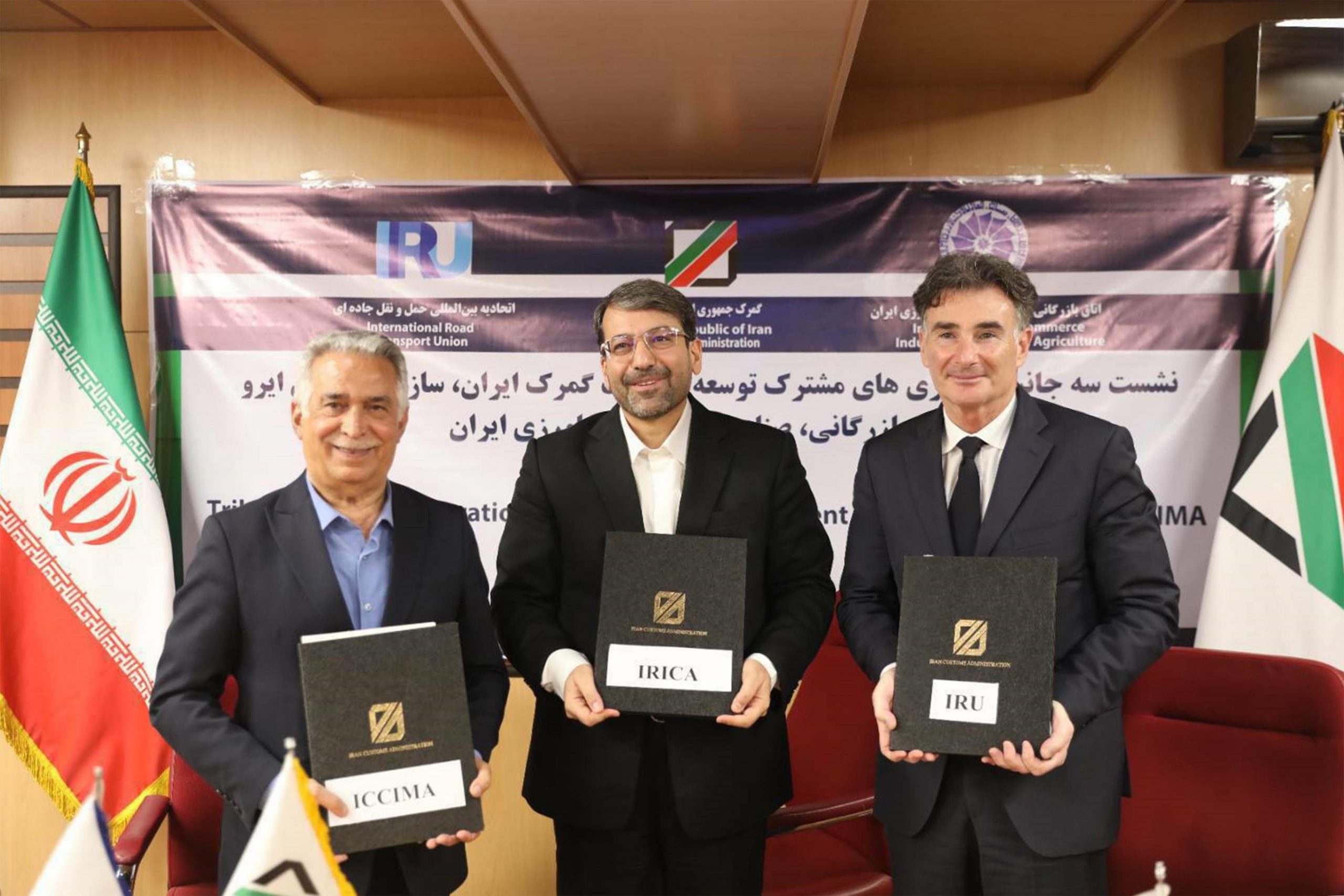
20 DEC 2023 · PROSPERITY
In light of Iran’s growing role in regional transit and trade, IRU’s Secretary General was in Iran to discuss how the country can continue along this path.
Umberto de Pretto, IRU’s Secretary General, was in Tehran this week for talks on trade facilitation and road transport professionalisation with the President of the Iran Customs Administration (IRICA), the President of the Road Maintenance and Transport Organisation (RMTO), the Secretary General of the Economic Cooperation Organization, and the President of IRU member ICCIMA.
On Iranian National Transport Day, IRU, ICCIMA and RMTO signed an agreement to improve road safety with IRU’s internationally recognised professional training and certification programmes.
Umberto de Pretto highlighted that the agreement, which follows a road safety webinar held last month, is a clear manifestation of how public-private partnerships can bolster road safety.
IRU and RMTO also reviewed the latest international transport and transit developments, including progress made at the national level over the past year to improve transit and border crossings. They outlined remaining challenges facing the Iranian road transport sector, particularly at borders, and plans to jointly address them in 2024.
Daryoush Amani, Iran’s Deputy Minister of Transport and the President of RMTO, noted that Iran’s transit volume grew by 33% in 2023, forecast to reach 12 million tonnes by the end of the year. He further emphasised the importance of cooperation on trade facilitation for Iran to reach its transit target volume of 40 million tonnes annually within the next five years.
Umberto de Pretto underscored that Iran could reduce border congestion and boost transit by following best practices, global standards and better procedures, including the establishment of TIR Green Lanes, transferring customs procedures from borders to inland customs offices, and eliminating the need for transhipments as well as the swapping of trailers.
Mohammad Rezvanifar, IRICA’s President, reiterated that the 11 million tonnes of goods which have transited Iran over the past eight months could have not happened without IRU’s support. He added that Iran is committed to digitalising customs documents, with IRICA soon starting the implementation of eTIR with the support of IRU and UNECE.
Recognising Iran’s high transit volume, implementation of TIR and geographical location, Umberto de Pretto stressed that the country’s transit potential is even greater. He added that to reach Iran’s transit target volume of 40 million tonnes per year, there is no option other than to improve policies and procedures, especially at border crossings.
To this end, IRU, IRICA and ICCIMA signed an MoU to conduct a study in order to identify effective measures to maximise Iran’s transit potential.

Additionally, welcoming Iraq’s accession to TIR, Mohammad Rezvanifar conveyed IRICA’s readiness to share its experience implementing TIR with Iraq and other neighbouring countries.
Iran is the leading issuer of TIR globally.
TIR in ECO region
In a meeting with the Economic Cooperation Organization’s (ECO’s) Secretary General, Ambassador Khusrav Noziri, IRU and ECO reviewed achievements advancing regional transport and transit facilitation, which were acknowledged by ECO ministers in Tashkent last month.
Umberto de Pretto highlighted the role of TIR in the ECO region, noting that over 70% of TIR operations are conducted in ECO countries, which includes the three biggest issuers of TIR globally.
IRU and ECO agreed to enhance their cooperation in 2024, including by benefiting from the newly established ECO-TIR National Associations Consultative Group, and expanding their efforts on TIR and transit, training and decarbonisation.
Umberto de Pretto also met with the President of IRU member ICCIMA, Hossein Selahvarzi. Both sides emphasised their commitment to strengthen joint activities on international transport, transit and TIR.
The implementation of a joint project with RMTO on professional driver training, promoting TIR among traders, and addressing transit and border crossing challenges, together with the public sector, were underlined as key areas for cooperation next year.













































